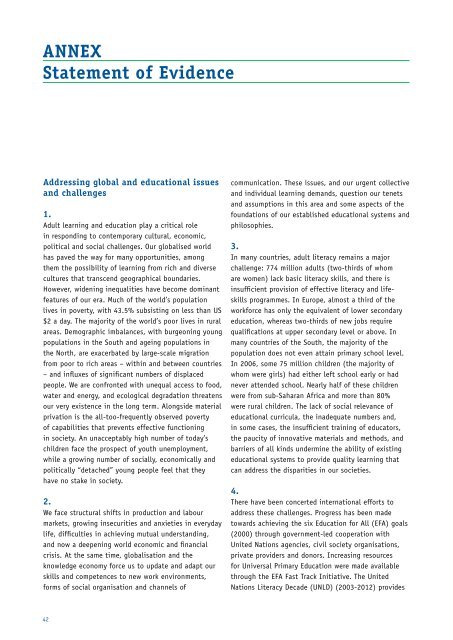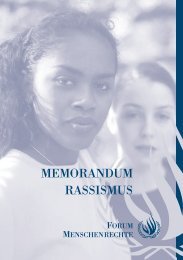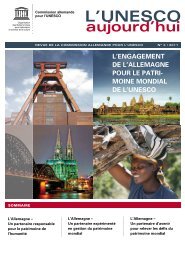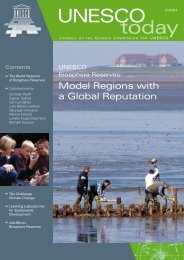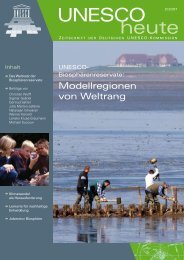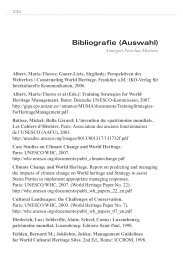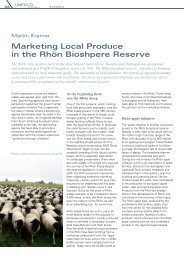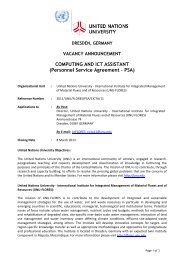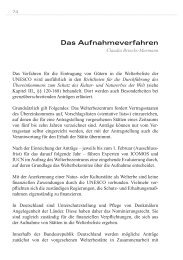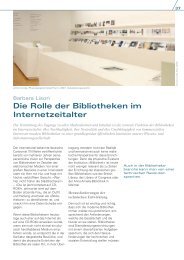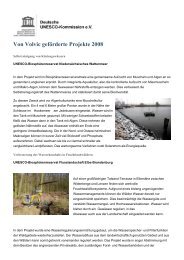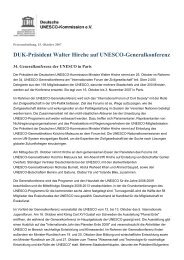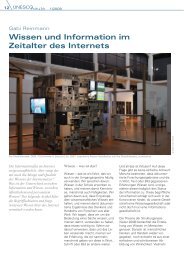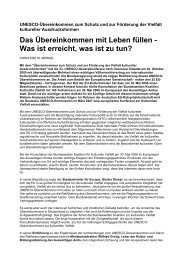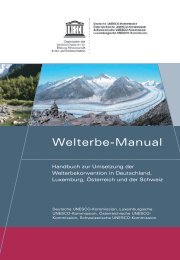CONFINTEA VI, final report - Unesco
CONFINTEA VI, final report - Unesco
CONFINTEA VI, final report - Unesco
Create successful ePaper yourself
Turn your PDF publications into a flip-book with our unique Google optimized e-Paper software.
ANNEX<br />
Statement of Evidence<br />
Addressing global and educational issues<br />
and challenges<br />
1.<br />
Adult learning and education play a critical role<br />
in responding to contemporary cultural, economic,<br />
political and social challenges. Our globalised world<br />
has paved the way for many opportunities, among<br />
them the possibility of learning from rich and diverse<br />
cultures that transcend geographical boundaries.<br />
However, widening inequalities have become dominant<br />
features of our era. Much of the world’s population<br />
lives in poverty, with 43.5% subsisting on less than US<br />
$2 a day. The majority of the world’s poor lives in rural<br />
areas. Demographic imbalances, with burgeoning young<br />
populations in the South and ageing populations in<br />
the North, are exacerbated by large-scale migration<br />
from poor to rich areas – within and between countries<br />
– and influxes of significant numbers of displaced<br />
people. We are confronted with unequal access to food,<br />
water and energy, and ecological degradation threatens<br />
our very existence in the long term. Alongside material<br />
privation is the all-too-frequently observed poverty<br />
of capabilities that prevents effective functioning<br />
in society. An unacceptably high number of today’s<br />
children face the prospect of youth unemployment,<br />
while a growing number of socially, economically and<br />
politically “detached” young people feel that they<br />
have no stake in society.<br />
2.<br />
We face structural shifts in production and labour<br />
markets, growing insecurities and anxieties in everyday<br />
life, difficulties in achieving mutual understanding,<br />
and now a deepening world economic and financial<br />
crisis. At the same time, globalisation and the<br />
knowledge economy force us to update and adapt our<br />
skills and competences to new work environments,<br />
forms of social organisation and channels of<br />
42<br />
communication. These issues, and our urgent collective<br />
and individual learning demands, question our tenets<br />
and assumptions in this area and some aspects of the<br />
foundations of our established educational systems and<br />
philosophies.<br />
3.<br />
In many countries, adult literacy remains a major<br />
challenge: 774 million adults (two-thirds of whom<br />
are women) lack basic literacy skills, and there is<br />
insufficient provision of effective literacy and lifeskills<br />
programmes. In Europe, almost a third of the<br />
workforce has only the equivalent of lower secondary<br />
education, whereas two-thirds of new jobs require<br />
qualifications at upper secondary level or above. In<br />
many countries of the South, the majority of the<br />
population does not even attain primary school level.<br />
In 2006, some 75 million children (the majority of<br />
whom were girls) had either left school early or had<br />
never attended school. Nearly half of these children<br />
were from sub-Saharan Africa and more than 80%<br />
were rural children. The lack of social relevance of<br />
educational curricula, the inadequate numbers and,<br />
in some cases, the insufficient training of educators,<br />
the paucity of innovative materials and methods, and<br />
barriers of all kinds undermine the ability of existing<br />
educational systems to provide quality learning that<br />
can address the disparities in our societies.<br />
4.<br />
There have been concerted international efforts to<br />
address these challenges. Progress has been made<br />
towards achieving the six Education for All (EFA) goals<br />
(2000) through government-led cooperation with<br />
United Nations agencies, civil society organisations,<br />
private providers and donors. Increasing resources<br />
for Universal Primary Education were made available<br />
through the EFA Fast Track Initiative. The United<br />
Nations Literacy Decade (UNLD) (2003-2012) provides


